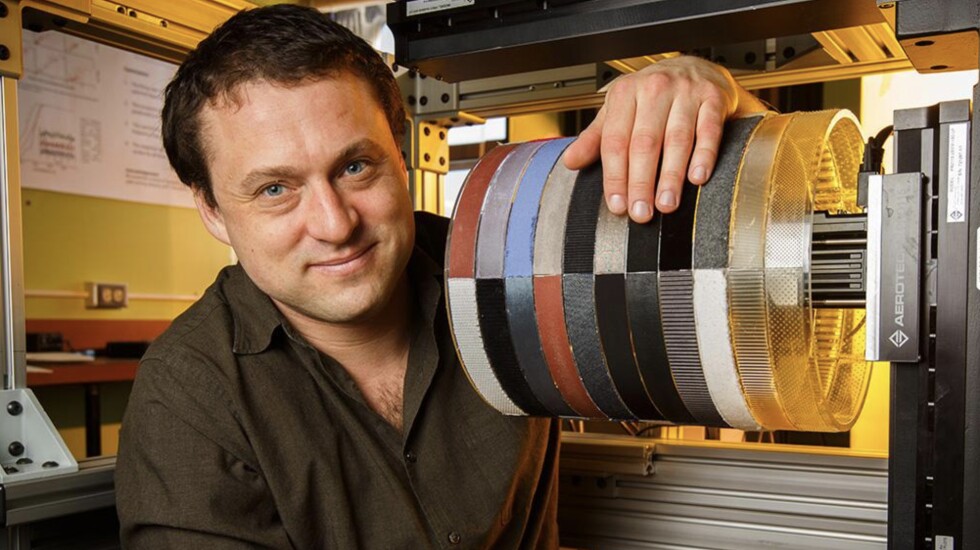
Sliman Bensmaia was not your typical scientist.
If you saw Mr. Bensmaia cruising Hyde Park in a leather jacket atop a Harley-Davidson or gigging with his funk jazz band FuzZz — the extra Z to capture the 1970s vibe of a fuzzy pair of rear-view mirror dice — you probably wouldn’t be able to guess his day job as a pioneering researcher in the neuroscience of touch whose work focused on creating the sensation in prosthetic limbs and the non-functioning limbs of people with spinal cord injuries.
Mr. Bensmaia died Aug. 11. He was 49. No cause of death has been given, according to his closest collaborator and fellow brain researcher Nicho Hatsopoulos.
Mr. Bensmaia liked to wear superhero T-shirts — Batman and Captain America — to his lab at the University of Chicago.
“We were not your stereotypical scientists hanging out in the lab,” said David Freedman, a fellow brain researcher and bandmate.
Part of Mr. Bensmaia’s research involved working with surgeons to implant electrodes in the brains of people with spinal cord injuries. When connected with tactile sensors on the fingers of a brain-controlled robotic arm, these allowed the people to experience a sense of touch.
His research team mapped areas of the brain that control specific parts of the hand by having his human test subjects undergo an MRI while, at the same time, asking them to imagine moving, for example, an index finger. The MRI would show which part of the brain controlled that particular function, providing a blueprint of where to surgically implant electrodes, according to Hatsopoulos.
In 2016, Mr. Bensmaia worked with partners at the University of Pittsburgh to develop the first robotic prosthetic arm that gave realistic touch feedback to a human who controlled the device with his thoughts. It enabled a 28-year-old man, who was paralyzed from the chest down, to distinguish between touches on individual fingers and the palm of a robotic hand.
The man used the prosthetic to greet President Barack Obama with a fist bump at a White House event.
“Boom!...You wanna blow it up? ...That is unbelievable,” Obama said.
Mr. Bensmaia’s fellow researchers at the University of Chicago have vowed to carry on the work he did, Hatsopoulos said.
And his band is planning to perform at a celebration of his life that’s being planned at the university, Freedman said.
The group, with Mr. Bensmaia on the keyboards, played venues around Chicago, including Reggies, Tonic Room and Subterranean. It released an eponymous album in 2013 and was in the process of recording a second one.
Mr. Bensmaia was born in France and grew up there and in Algeria before moving to the United States as a teenager.
“He was a larger-than-life kind of character,” Hatsopoulos said. “He had very strong opinions, didn’t like formality and swore like a sailor. Not in a mean way. That’s just how he expressed himself.”
Mr. Bensmaia, who joined the University of Chicago faculty as an assistant professor in 2009, often used music as a metaphor to describe how our senses come together like a jazz quintet to shape our experience of the world.
He is survived by his wife Kerry Ledoux and children Cecily and Maceo.







